Smart Cities
Smart Cities
By the year 2050, seven out of every ten people will be living in cities. We then need a smarter approach to urbanization, which requires new ways of addressing problems such as urban densification, energy and water consumption, resource management, and environmental protection. Smart cities innovate in order to meet urban needs and create a space in which traditional networks and services become more efficient as they use digital technologies, artificial intelligence, and automation, among other technological advancements for the benefit of their citizens and businesses.
We define a smart city as “an innovative city that uses Information and Communication Technologies (ICTs) and other means to improve quality of life, the efficiency of urban operation and services, and competitiveness while ensuring that it meets the needs of present and future generations with regard to economic, social, and environmental aspects”. Smart cities employ innovative solutions in search of increasing urban sustainability and resilience.
The importance of this matter becomes even more noticeable when we take into account that the UN (United Nations) 2030 Agenda for Sustainable Development dedicates Goal 11 – Sustainable Cities and Communities – entirely to such issues, with the purpose of “making cities and human settlements inclusive, safe, resilient and sustainable”.
Faced with this scenario, building urban resilience for Brazilian cities is crucial to avoid human, social and economic losses. Brazilian universities, including the Federal University of Rio de Janeiro (UFRJ), are undeniably capable and active in using their expertise and delivering scientific solutions to society, making cities smarter and thus continuing to readily carry out their social role. As such, there is an urgent need to promote Research, Development, and Innovation (RD&I) projects through objective efforts.
Our role
In the context of smart cities, the RD&I complex that develops smart urban solutions at COPPE is made up of 55 laboratories, a business incubator with more than 100 resident and graduated companies, for a total of approximately 33,000 m2 with nearly R$ 270.6 million in investments. Furthermore, we demonstrate our expertise in smart cities with our RD&I infrastructure; RD&I laboratories and qualified human resources in various fields in engineering; in addition to solutions and technologies in digital transformation that can be applied to multiple sectors in smart cities.
As such, we at COPPE put into practice our competence in Engineering, Science, and Technology for the development of sustainable cities and their resilience, with our partnerships with other Institutions for Science and Technology, companies, development agencies, and other government agencies.
Smart Cities and the Innovation Ecosystem
Smart cities require the ecosystems of public and private agents to co-create innovative smart solutions. The COPPE/UFRJ smart city ecosystem integrates science and technologies that guarantee the development of RD&I programs and disruptive technologies at the frontier of smart cities. The RD&I infrastructure and human resources here at COPPE are the foundation for producing knowledge and intelligent solutions that are both relevant to science and to a country’s social and economic well-being. Our work aims at solving complex urban problems in multiple sectors and across eight core subjects: energy, infrastructure, logistics, healthcare, air, water, sanitation and waste management, mobility, extreme climate event monitoring, and governance.
Some of the potential deliverables originating from our smart cities ecosystem are (a) smart urban solutions resulting from RD&I projects in the core subjects we act in; (b) government agenda in Brazilian municipalities and states for the planning and implementation of more sustainable and resilient Brazilian cities; and (c) research infrastructure from our laboratory complex and human resources, aimed at developing digital transformation technologies for smart cities.
Our university’s living laboratory and smart city cluster
One of our projects from the COPPE/UFRJ smart city ecosystem promotes a cluster of technological solutions in multiple sectors that can transform the Cidade Universitária campus into a smart city.
A cluster of solutions belongs in the context of areas of innovation, which we define as a place (such as a city, region, district, or metropolitan area) with elements (such as human resources, programs, services, and infrastructure) aimed at promoting innovation. The geographic proximity of specialists in heterogeneous networks favors their collaboration and innovation, which is of utmost importance for generating economic and social development. Lastly, since the properties of the Cidade Universitária campus allow us to compare it to a medium-sized city, we use this campus as a living laboratory for applying and monitoring urban solutions that can be replicated in other locations.
